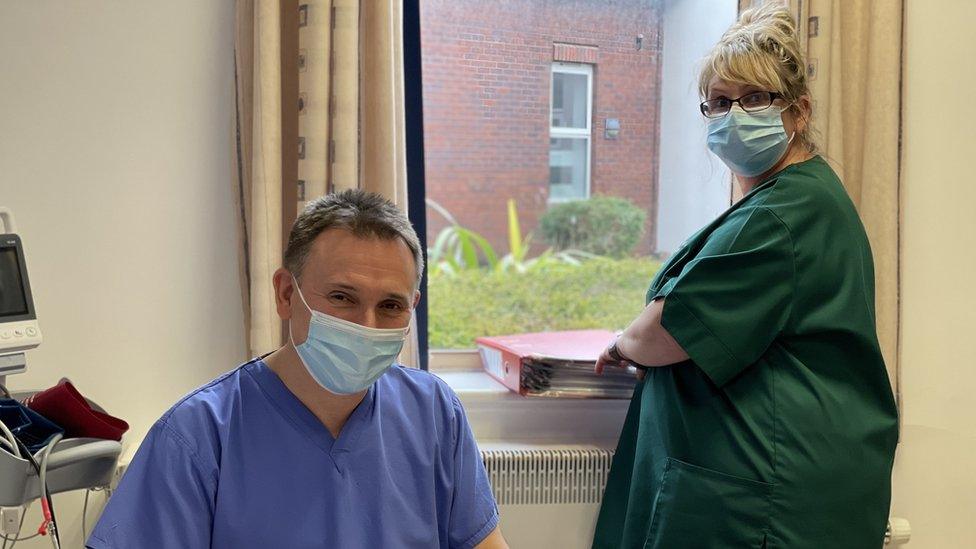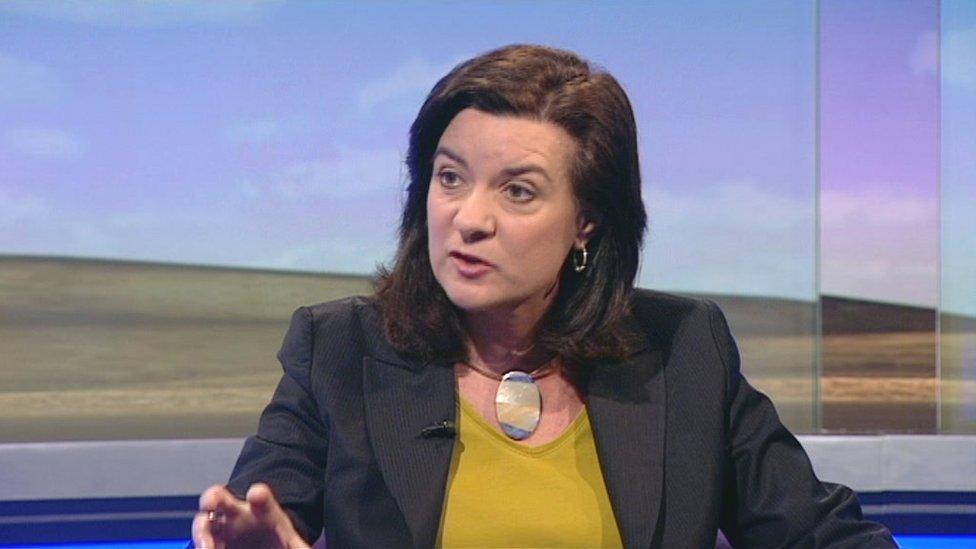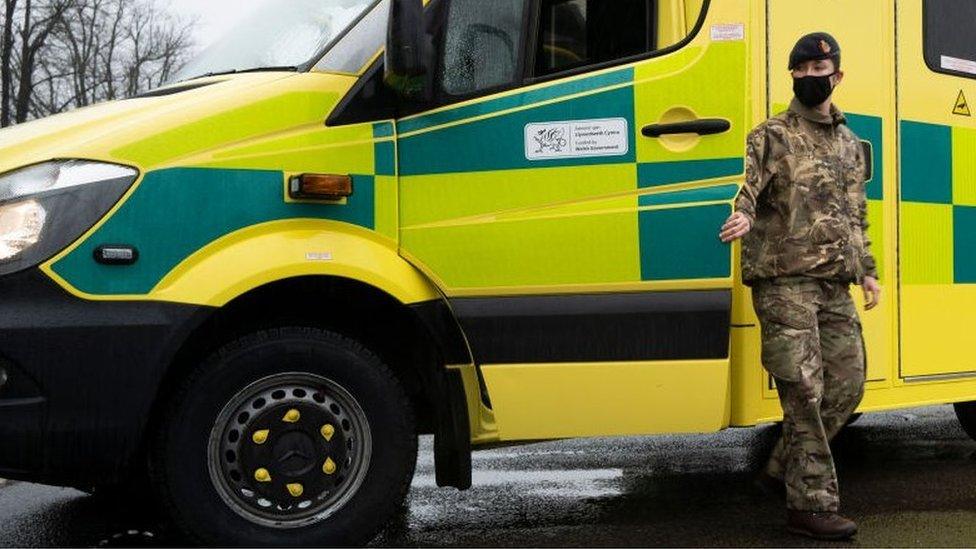Covid: Lack of hospital beds makes spread 'inevitable'
- Published
- comments
Covid doctors: "This wasn't what I signed up for"
A lack of beds in Welsh hospitals meant it was "inevitable" Covid patients would come into contact with others, a doctor has said.
"Seeing patients in bed at the time of admission is becoming a rarity," Dr Nicky Leopold said.
Some patients, including those with Covid, have had to spend nights on chairs in A&E due to a lack of beds.
The Welsh government said it aimed to deliver 12,000 more staff by 2024-25.
Dr Leopold, a consultant geriatrician, who is a member of the BMA union in Wales, said there had been recent improvements since the number of NHS staff testing positive for Covid fell, but the flow of patients through hospital was still a problem.
'Patients in dire need'
She said: "So many patients are stranded in hospital and that's very difficult and frustrating. There just aren't the staff in the community to support the increased level of need."
Outpatient appointments had also been affected by shortages, she added. A lot of patients were in "dire need" and staff were "desperately" trying to keep clinics running.
Dr Steve Kelly, a respiratory consultant, described "really difficult working conditions" with so many beds full of patients who had tested positive for Covid.
He said fewer patients needed as much respiratory support as before but staff were "just overwhelmed with patient numbers".
"Lots of people are effectively trapped because we can't sort out care packages or help because they remain Covid-positive, so they need to stay with us until they're Covid-free," he said.
"It just slows down the process and makes our beds more full and makes the admissions more difficult and means people coming in spend longer in the emergency department than we would like."

Dr Kelly says many patients are effectively trapped
Meanwhile, Dr Phil Banfield, the chairman of the BMA Cymru Wales consultants committee, said: "The impact of the pandemic on the NHS is the tip of the iceberg.
"This predicament is one that was years in the making, the pandemic has just exacerbated the existing issues in the system.
"Health services will not be able to ensure patient safety or protect the fragile recovery of elective services without a well-supported, healthy and safe workforce.
"It is imperative the Welsh government and NHS employers take urgent action to expand the workforce and retain the staff we have."
Wales' health minister, Eluned Morgan, said a plan to tackle waiting lists would be published in April.
A similar plan for England was published by the UK government this week.
Ms Morgan told the Welsh government's health committee the plan could not be announced sooner as uncertainty remained about omicron's impact and how infection controls would continue to affect hospitals.

Wales' health minister, Eluned Morgan, said a plan to tackle waiting lists would be published in April
She said: "Covid is still having an impact on staffing levels in the NHS... which has an impact on our capacity to increase surgical activity."
It's estimated about 1,000 patients in hospital beds are fit to go home but waiting for care to be arranged.
Last month figures showed waiting lists for treatment in Wales had hit record levels for the 19th successive month.
The latest waiting times statistics will be published next Thursday.
Health boards are due to submit their proposals to increase planned activity to the Welsh government by the end of March.
NHS Wales's chief executive, Judith Paget, said the plans would include "specific ambitions and actions" regarding patients who had been waiting longest.
The Welsh government said: "We are committed to increasing capacity through the recruitment of a range of professions including investing record amounts of more than £260m in training places to deliver an additional 12,000 clinical staff by 2024-25.
"We know how hard our health and social care staff have been working throughout the last couple of years and we want to thank them for everything they do."

THE ASIAN WELSH: How immigration from the Indian subcontinent transformed Welsh health, culture and the economy
FIGHT FOR YOUR RIGHTS: X-Ray returns and they've got your back

Related topics
- Published20 January 2022

- Published20 January 2022

- Published9 February 2021

- Published22 September 2021

- Published6 January 2022
